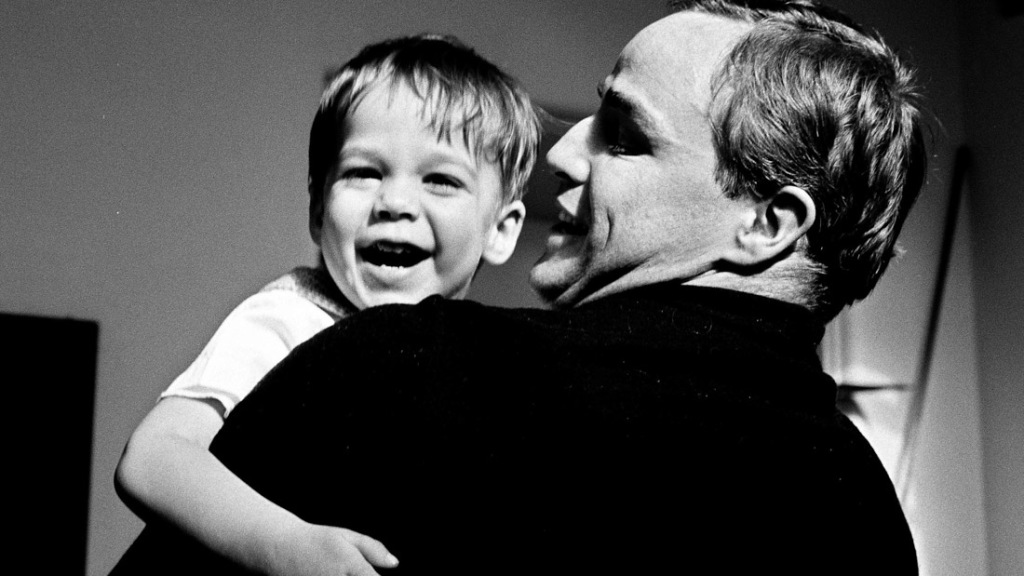
In the documentary Listen to Me Marlon, we hear Marlon Brando relate his life story in his own words – and we ONLY hear Brando’s words. Director Stevan Riley received access to hundreds of hours of audio tapes – self-recording made by Brando while he was alone – and never heard until now. These recordings, along with recorded Brando interviews and clips, are artfully assembled by Riley, and, together, amount to a deep and apparently truthful self-portrait.
Brando was playful and mischievous and often self-important, and the content of his interviews with journalists aren’t that reliable. But it’s clear that he isn’t BSing in these solitary recordings. He is open about his character flaws and their origin in his family background – a brute of a father and a sweet but erratic alcoholic mother.
Speaking in the third person, Brando describes himself as “a troubled man alone…confused”. Listen to Me Marlon is filled with nuggets:
- On his upbringing: “My father is never going to come near that child (his first son Christian) because of what he did to me”.
- On his art: “you want to stop that motion from the popcorn to the mouth. The Truth will do that.”
- On the womanizing that broke up his first marriage “The beast aspect of my personality held sway”.
- On the execrable Candy: “the worst movie I ever made” (drawing knowing chuckles from the audience).
Some of the tapes even record self-hypnosis as he battles obesity. And there’s a VERY COOL digitized talking Brando head, swirling around in blue pixels as he expounds.
There are also two outtakes where we SEE Brando’s womanizing in action as he comes on to attractive interviewers. We can recognize the instant that, as he says, he starts “thinking with his penis” and launches his flirtatious charm.
I saw Listen to Me Marlon at the San Francisco International Film Festival, where it will screen again this week. Director Riley spoke at the screening, as did noted film historian David Thomson and Brando’s children, Rebecca Brando and Miko Brando.
Rebecca Brando credits Riley for the film’s “humanity” as it treats Brando’s “childhood pain”. Miko Brando pointed out that the flashing lights in some clips came from the bio-feedback machine that Brando used at night. “He went to work as a movie star and came home – not a movie star – just a father”, said Miko, who had just seen the film for the second time.
David Thomson spoke of Brando’s “momentous” and truthful Method as the birth of “genuinely American approach to acting” and its effect on cinema: “the method is made for the close-up” because “if you are agonizing over what to say”, the audience needs to be close enough to see it.
Stevan Riley made the most of his access to the tapes – it’s a masterful job of selection and editing. Listen to Me Marlon opens tomorrow in theaters, and I expect it to eventually play on Showtime.
